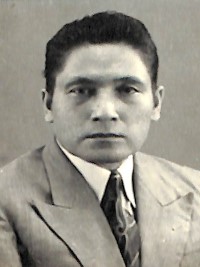Collective Data : Party Background
Major political parties in Indonesia that dominated the Konstituante had their roots further back before the country’s independence. The largest faction in the Konstituante, the Indonesian National Party (PNI), although was established after the independence, had its root in a prior PNI established by Soekarno in 1927, and the name was used several times since. The leading Islamic party Masjumi was also linked to an umbrella organisation of major Islamic institutions founded on Java before independence, during the Japanese occupation in 1943 before it transformed into a political party in November 1945. Nahdlatul Ulama (NU, meaning ‘the revival of the religious scholars’ in Arabic) was a mass organisation from the 1920s, and broke off from Masjumi in the early 1950s to become its own party. The Indonesian Communist Party (PKI) was also linked to the same institution that carried out an uprising in 1926-7.
More broadly speaking, the political parties in Indonesia in the 1950s can be divided into several major ‘streams’, namely nationalist, religious, social democrat, and social radical (communism). The nationalists included most notably PNI, but also smaller parties with similar ideology such as IPKI, PIR, and PRIM. The religious parties with both Islamic (such as Masjumi and NU, but also PSII, Perti, PPTI, AKUI) and Christian (Parkindo and Partai Katholik). The Indonesian Socialist Party (PSI) is emblematic of the moderate social democrats, and the PKI was clearly inspired by a more radical ideology.
Collective Data
Members

K.H. Achmad Zabidi
Born: Kota Surakarta, No data provided
Address: Djl Glatik no 80. Kota Surakarta Jawa Tengah
No. Member: #194
Party: NU (Nahdlatul Ulama)

H. Aboebakar
Born: Kota Banda Aceh, 28 April 1909
Address: Tidak diisi Kota Banda Aceh Aceh
No. Member: #68
Party: Masjumi